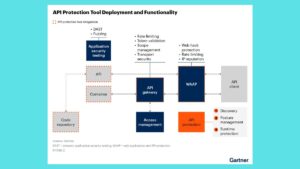How HR Tech Enables Agile, Inclusive & Efficient Workplaces

In today’s fast-paced business environment, organizations must adapt quickly to changing circumstances, foster an inclusive culture, and maintain operational efficiency to thrive. Human Resource (HR) technology plays a pivotal role in enabling these critical elements within the workplace. By leveraging innovative HR tech solutions, organizations can enhance agility, promote inclusivity, and streamline processes, ultimately creating a more efficient and dynamic work environment. In this blog, we will explore how HR tech is transforming workplaces and driving success.
The Role of HR Tech in Modern Workplaces
HR technology encompasses a wide range of tools and platforms designed to automate and optimize various HR functions, from recruitment and onboarding to performance management and employee engagement. Here are some of the ways HR tech is enabling agile, inclusive, and efficient workplaces:
1. Fostering Agility Through Flexibility
Agility is crucial for organizations to respond effectively to market changes and evolving employee needs. HR tech solutions facilitate agility in several ways:
- Remote Work Enablement: With the rise of remote and hybrid work models, HR tech tools, such as collaboration platforms and project management software, enable seamless communication and teamwork across geographically dispersed teams. This flexibility allows organizations to adapt quickly to changing work environments.
- Real-Time Feedback: Traditional performance management processes often rely on annual reviews, which can be inflexible and slow. HR tech platforms enable real-time feedback and continuous performance management, allowing employees and managers to engage in ongoing conversations about goals, challenges, and achievements. This fosters a culture of agility, where teams can adjust their efforts based on immediate feedback.
- Skill Development: HR tech solutions provide access to a wealth of online training resources and learning management systems, enabling employees to upskill quickly in response to changing business needs. Organizations can create personalized learning paths that align with both employee aspirations and organizational goals, promoting a culture of continuous learning and adaptability.
2. Promoting Inclusivity in the Workplace
An inclusive workplace is essential for attracting and retaining diverse talent and fostering innovation. HR tech can drive inclusivity in several ways:
- Bias Reduction in Recruitment: AI-driven recruitment tools can help reduce unconscious bias by standardizing the screening process. By analyzing candidates based on their skills and experiences rather than demographic factors, organizations can build diverse teams that bring varied perspectives and ideas.
- Diversity Analytics: HR tech platforms often include analytics tools that track diversity metrics and monitor progress toward inclusion goals. By providing data-driven insights, organizations can identify areas for improvement and implement targeted initiatives to promote diversity and inclusion within their workforce.
- Employee Resource Groups (ERGs): HR tech solutions can facilitate the formation and management of ERGs, providing a platform for employees to connect, share experiences, and advocate for underrepresented groups. These groups foster a sense of belonging and support among employees, enhancing overall workplace culture.
3. Enhancing Efficiency Through Automation
Efficiency is key to achieving organizational goals and driving productivity. HR tech solutions streamline processes and reduce administrative burdens in the following ways:
- Automated Administrative Tasks: HR tech platforms can automate routine tasks such as payroll processing, benefits administration, and employee onboarding. By reducing the time spent on administrative work, HR professionals can focus on strategic initiatives that drive business outcomes.
- Centralized Data Management: HR tech solutions often feature centralized databases that store employee information, performance data, and engagement metrics. This centralized approach simplifies data access and reporting, allowing HR teams to make informed decisions based on accurate, real-time information.
- Integrated HR Systems: Many HR tech platforms offer integrated solutions that connect various HR functions, from recruitment to performance management. This integration enhances collaboration between departments and eliminates data silos, resulting in a more cohesive and efficient HR function.
4. Driving Employee Engagement and Well-Being
Engaged employees are more productive, committed, and satisfied in their roles. HR tech tools can enhance employee engagement and well-being in several ways:
- Employee Surveys and Feedback Tools: HR tech platforms often include survey tools that enable organizations to gather feedback from employees on their experiences, needs, and concerns. By actively seeking input and acting on it, organizations can foster a culture of transparency and collaboration.
- Wellness Programs: Many HR tech solutions offer wellness program management features that promote employee well-being. From mental health resources to fitness challenges, these programs encourage employees to prioritize their health and work-life balance.
- Recognition and Rewards Systems: Employee recognition platforms enable organizations to celebrate employee achievements and contributions. By creating a culture of recognition, organizations can boost morale and motivation, leading to higher levels of engagement and job satisfaction.
Conclusion
HR technology is a powerful enabler of agile, inclusive, and efficient workplaces. By leveraging innovative HR tech solutions, organizations can foster a culture of adaptability, enhance diversity and inclusion, streamline operations, and drive employee engagement.
As businesses continue to navigate the challenges of the modern workplace, investing in HR tech will be essential for staying competitive and meeting the evolving needs of employees. Embracing these technologies not only enhances organizational effectiveness but also creates a workplace where all employees can thrive, contribute, and succeed.
In the rapidly changing world of work, organizations that prioritize HR tech will be better positioned to achieve their goals and foster a positive, inclusive, and efficient workplace culture.






